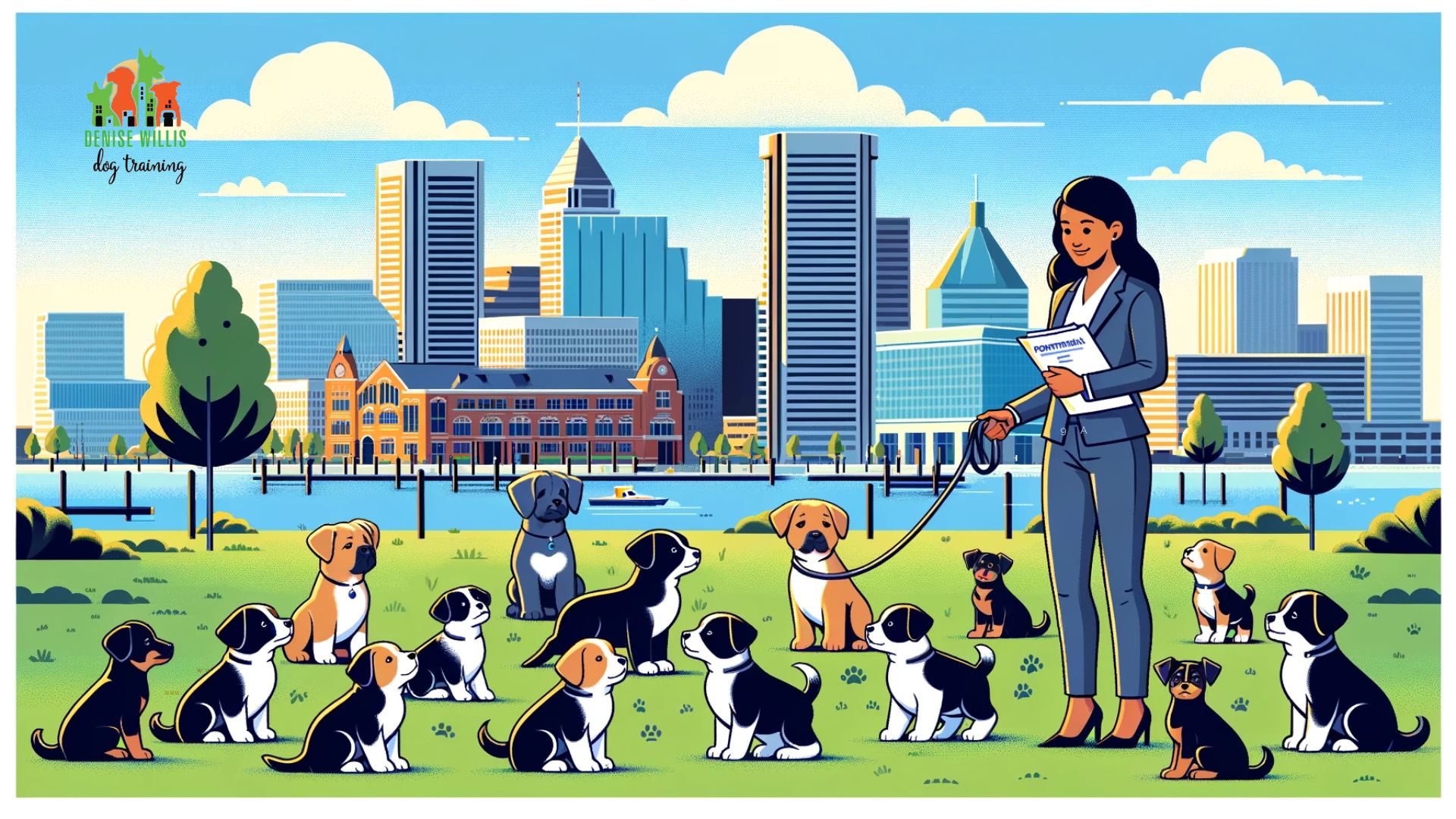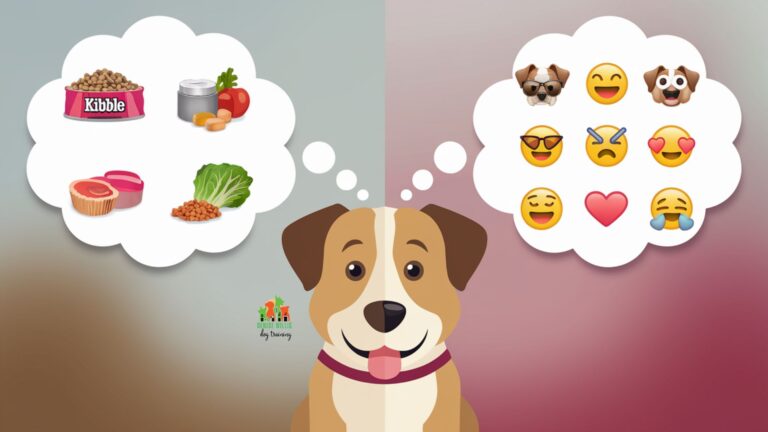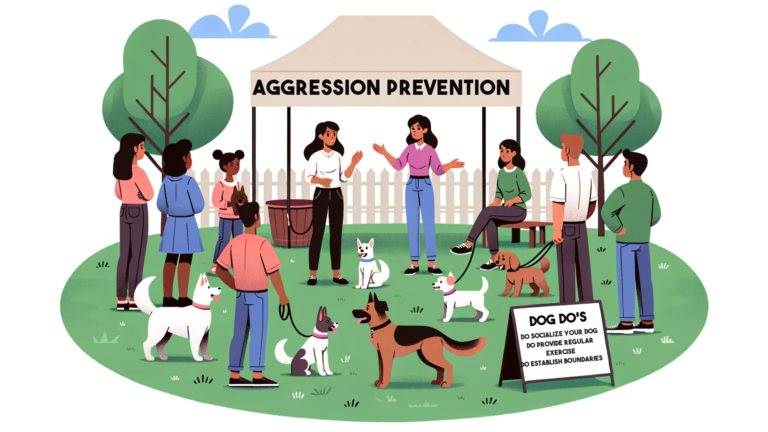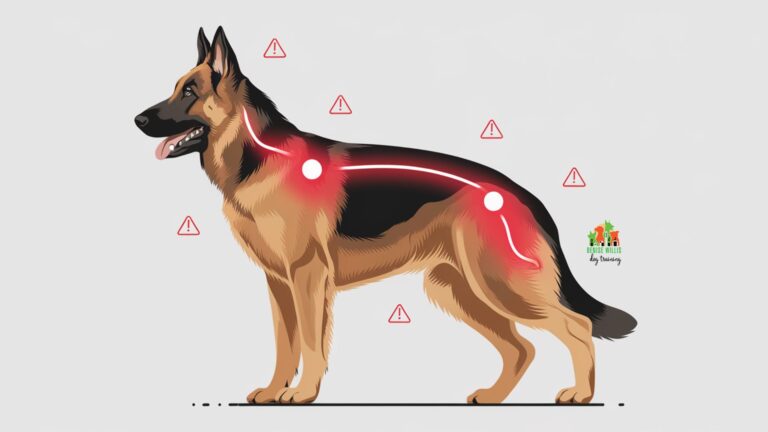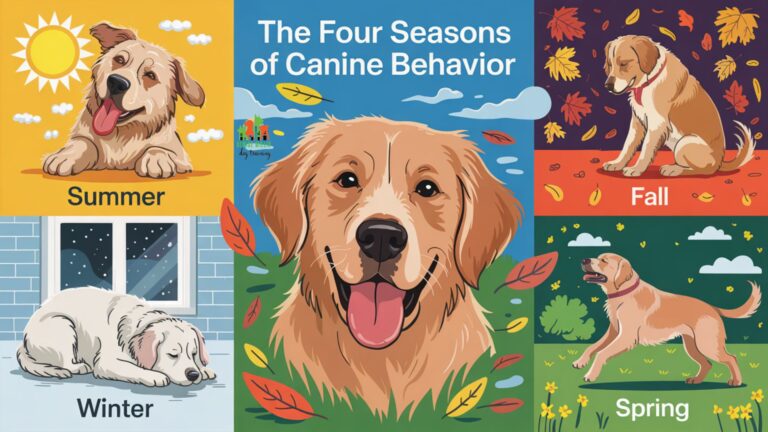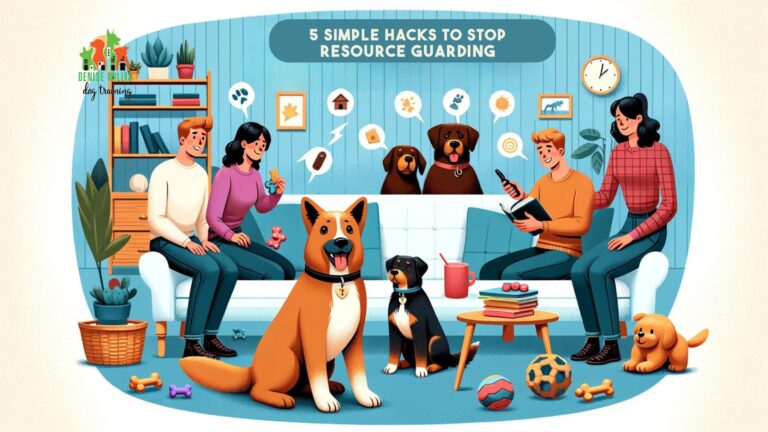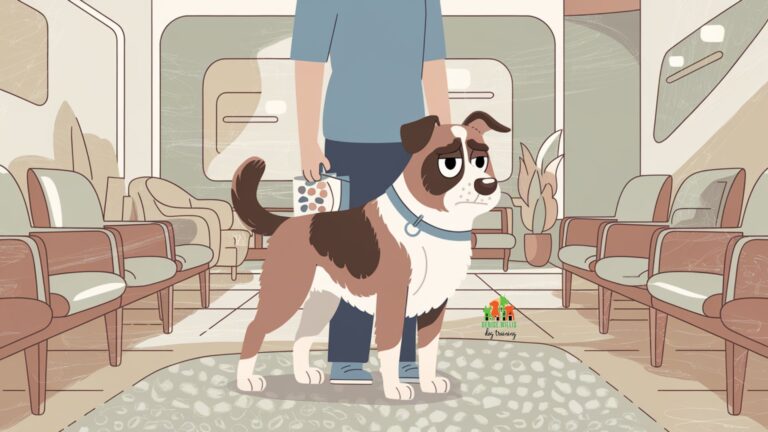Puppy Training In Baltimore: Transforming Adorable Pups into Well-Behaved Companions
📍 Service Area Notice: DW Dog Training provides in-person training services exclusively in the Greater Baltimore area. While our blog content is designed to help dog owners internationally, our hands-on training services are locally focused. For readers outside our service area, we hope you find value in our articles and welcome you to reach out with questions!
Bringing a new puppy into your home in Baltimore is an exciting time, but training and socializing your puppy properly is key to having a well-behaved dog. Proper puppy training establishes good behaviors and manners early on, setting up your dog for success as an adult. This article will provide an overview of puppy training goals, finding a trainer, teaching basic obedience commands, house training, socialization, and managing unwanted behaviors.
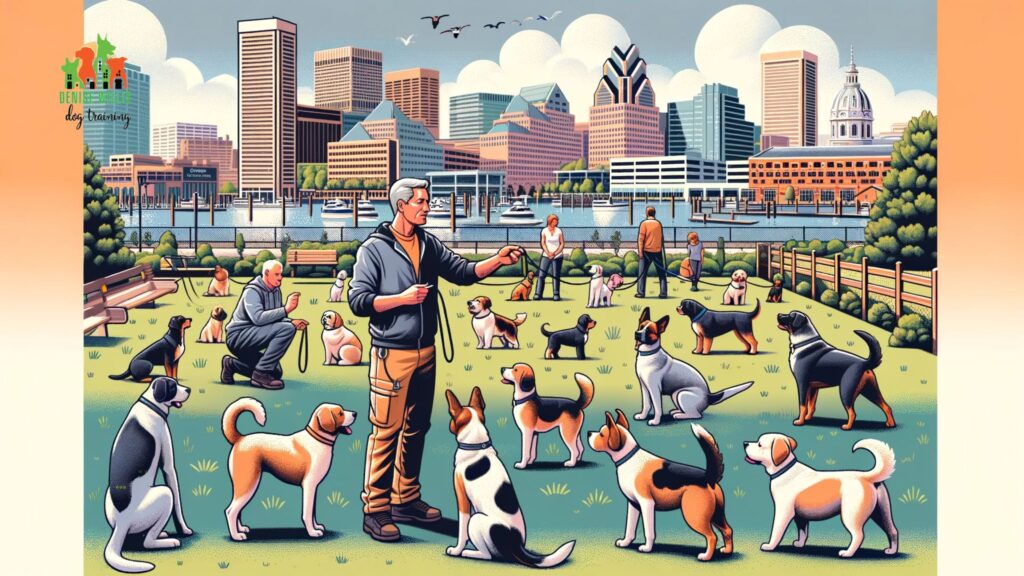
What Should You Know About Puppy Training in Baltimore
The first few months with your puppy are critical for proper training and socialization. By beginning training early, you can instill good habits and prevent problem behaviors down the road. The main goals of puppy training include:
- Socialization with people, dogs, places, sounds, etc. This exposure in a positive context prevents fear and anxiety issues later on.
- Basic manners like not jumping or nipping
- Learning basic obedience commands like sit, stay, and come
- Housetraining and crate training
- Building a strong bond and communication with your puppy
The first 6 months of a puppy’s life are the most developmental – their brains are primed for building neural connections that shape future behavior and responses. So starting young sets them up for success. In Baltimore, there are lots of great options for puppy training classes and professional trainers who use positive reinforcement methods.
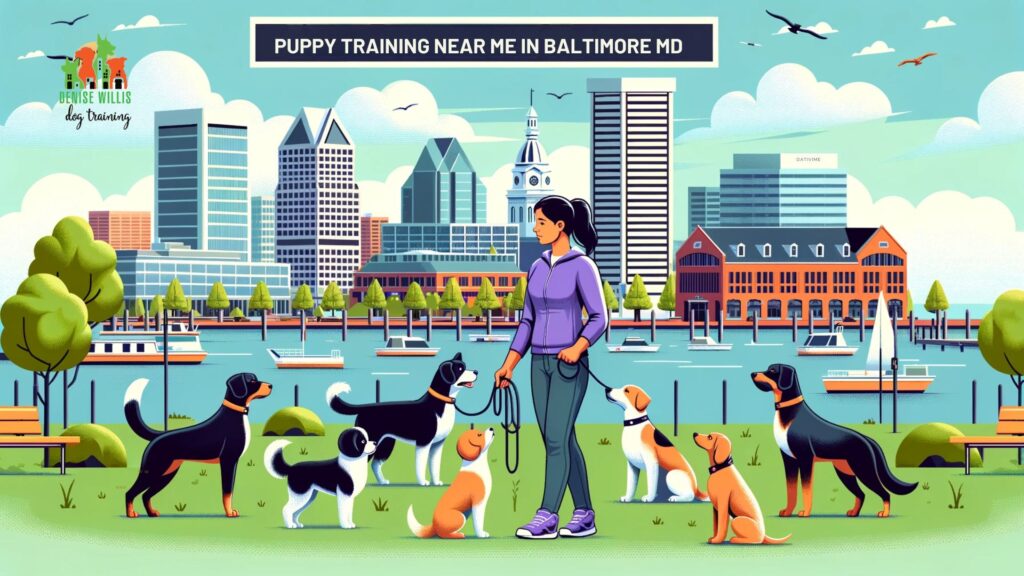
Key Takeaways for Puppy Training in Baltimore
The First 6 Months are Critical for Development
- Use this developmental priming stage to build good habits
- Socialization prevents future fear/anxiety issues
- Stop unwanted behaviors before they become ingrained
Find a Reputable Baltimore Trainer
- Certified trainers ensure humane, expertise-based methods
- Choose classes fit for your puppy’s age and needs
- Small classes and private sessions allow personalized attention
Start Basic Obedience Early
- Focus initial commands on safety, impulse control, and bonding
- Short, engaging sessions optimize puppy attention spans
- Use rewards-based/positive reinforcement-based training
Set Up Structure for Housebreaking
- Close supervision prevents accidents in the house
- Stick to a consistent and frequent potty schedule
- Use crate training to utilize den instincts
Prioritize Socialization
- Gradually introduce new people, dogs, environments, etc.
- Make sure exposures are safe and positive contexts
- Pair socialization with praise and rewards
Continue Skills Development into Adulthood
- Lifelong training solidifies good behaviors long-term
- Maintain social skills and stimulation
- Work towards a Canine Good Citizen certificate
Consistency and Patience Are Key
- Accentuate positive behaviors over punishing negatives
- Tailor training to your unique puppy
- Persistence pays off with a well-adapted dog
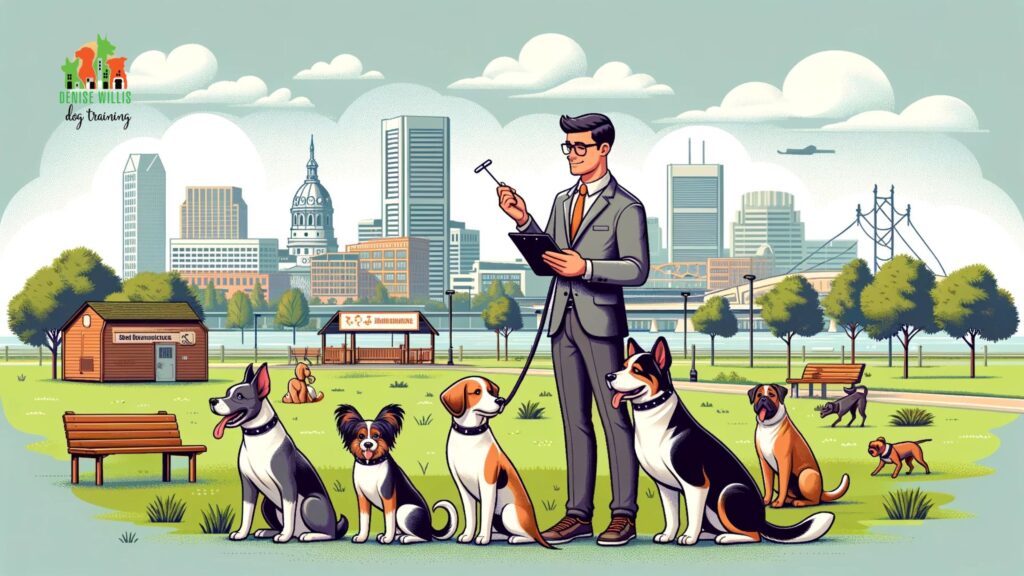
Finding a Puppy Trainer in Baltimore
While some basic training can be done yourself, working with professional dog trainers in Baltimore provides expert guidance specific to your pup and also opportunities for socialization. Some things to look for when finding a trainer include:
- Certified and experienced working with puppies
- Uses reward-based/positive reinforcement training methods
- Small class sizes or offers private sessions
- Covers socialization, obedience, manners, and problem-solving
- Continues building skills for adolescence and adulthood
Finding the right trainer sets you up for training success throughout all life stages after puppyhood. An excellent trainer suits their approach to each puppy’s unique personality and needs.
Basic Obedience Commands to Teach Your Puppy
The basic obedience commands to start teaching any puppy include:
- Sit – Fundamental command for manners and impulse control
- Stay – Prevents chasing or bolting, which is important for safety
- Come – The most important command for reliability off-leash
- Down – Calms excited energy and teaches listening skills
- Heel -Structured walking and focus next to you
When teaching these commands, use rewards-based techniques, meaning you give treats/praise when they demonstrate the desired response. Other key tips include patience, consistency, keeping sessions short for puppies, and using real-life practice not just formal training. Work at your puppy’s pace and make it fun!
House Training Your Puppy
To set your puppy up for success with house training, start with an understanding of their physical capabilities and signals:
- Puppies cannot physically hold their bladder for long, needing potty breaks every 1-2 hours
- Learn their potty signals like circling or sniffing
- Prevent accidents by frequent potty trips, close supervision, and confinement when you can’t watch them
- Crate training utilizes dogs’ instinct to not soil their den
Develop a consistent schedule with potty breaks about every 45 minutes when they are active. Always praise and give treats for correct bathroom habits. Thoroughly clean any accidents with an enzymatic cleaner. Be patient and consistent, as puppies physically cannot yet control their bladder.
Socializing Your Baltimore Puppy
As a Baltimore puppy, proper socialization includes positive exposure to:
- New people – men, women, and children of different ages/races
- Friendly dogs – varying sizes/energy levels
- Urban noises – sirens, buses, construction, etc.
- Handling – touching paws, ears, tail, mouth
- Locations – parks, stores, elevators
- Surfaces – wood floors, metal grates, slippery tiles
This stimulus in a positive context builds confidence and trust in your puppy, preventing fear-based behaviors. Socialization is especially key for breeds prone to wariness or aggression later on. Seek controlled and safe settings for making introductions. Maintain engaging with your puppy during exposures and pair stimuli with treats/praise.
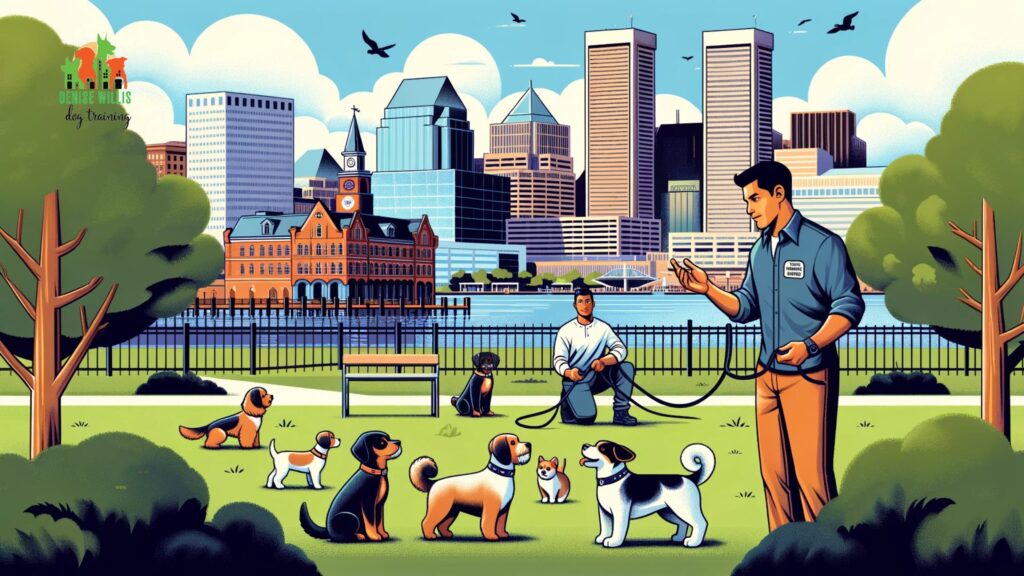
Managing Unwanted Behaviors
As normal puppy behaviors, nipping, mouthing, and jumping up must be properly redirected. Puppy training sets the foundation for minimizing these unwanted habits long-term:
- Have ample chew toys on hand to redirect from hands/feet nipping
- Say “ouch!” to feedback that nipping hurts, praise gentle play
- Ignore/walk away when jumped on, reward four paws on the floor
- Be consistent in not allowing undesirable habits to continue
Reinforce positive behaviors you want to see instead, using food, toys, and attention rewards. Part of puppy training is teaching good behaviors to replace unwanted ones through patient and consistent guidance.
Preparing for a Well-Mannered Adult Dog
While formal puppy training generally covers until 6 months old, the first 1-2 years of a dog’s life are still critical for building skills, habits, and behaviors that they’ll carry into adulthood. Important components for the next training stages include:
- Continuing obedience training, increasing distraction levels
- Maintaining social skills around new dogs/people/places
- Considering advanced skills like agility or nosework
- Working towards the AKC Canine Good Citizen test for manners
- Practicing loose leash walking for enjoyable strolls together
- Engaging their minds through interactive toys and activities
The end goal of puppy training is to shape and support development into a happy, confident, well-adjusted adult dog. Keep reinforcing training foundations and engaging your dog – this stage still makes an immense impact. Consistency, patience, and kindness remain key tenets of relating with your dog long-term.
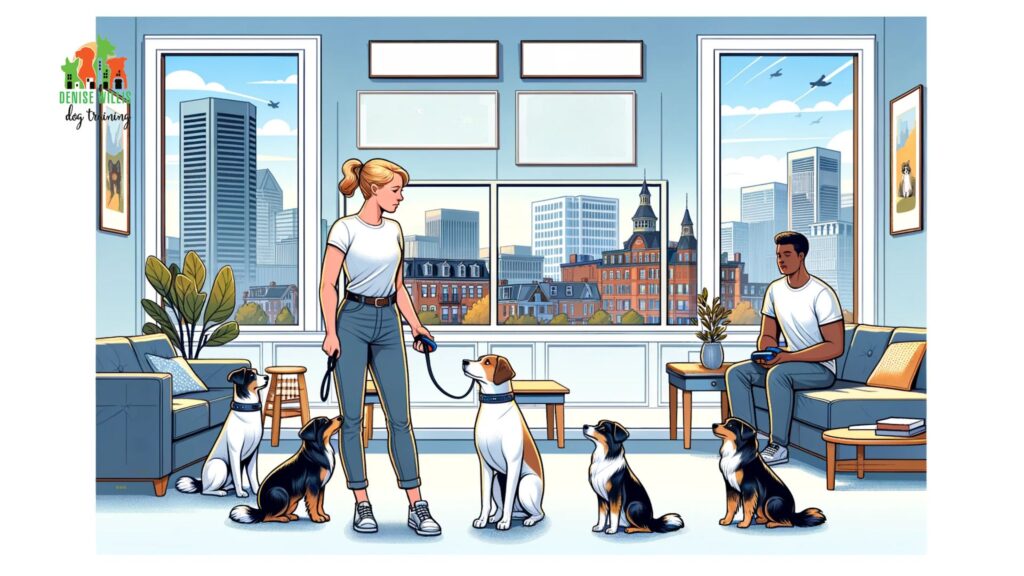
Final Thoughts
In summary, puppy training starts with proper socialization, redirection of unwanted habits, building communication through basic obedience commands, and housetraining. By beginning early and utilizing reward-based training, you promote good manners and behaviors in your adult dog down the road. Find the right certified trainer for your needs, practice consistency, and make sure sessions stay engaging and fun! Proper puppy training takes work but pays back exponentially in your dog’s future responses and the strong relationship between you. With the right start in early development, your Baltimore puppy will become a happy companion for life.
Creating Lasting Bonds Through Communication
At DW Dog Training, our goal is to help you build a strong lifelong bond with your canine companion. We believe open communication and mutual understanding are the keys to a happy relationship between pets and their people.
Our customized training programs aim to give dog owners the skills to clearly convey their needs, set reasonable expectations, and reinforce positive behaviors. We want to empower you with simple, effective methods to relate to your unique pup.
Whether your dog is struggling with basic obedience, behavioral issues, or you simply want to deepen your connection, our experienced trainers can provide tailored guidance. We keep sessions engaging for both you and your dog while accentuating the joy.
By learning to communicate better with your pet, frustrations subside on both ends. You’ll be able to prevent and resolve unwanted habits through consistent redirection. And your dog will look to you confidently for leadership.
At DW Dog Training, we don’t believe in quick fixes or excessively rigid methods. Our personalized approaches help dogs of any age or breed reach their potential through understanding, patience, and praise.
If you’re looking to improve obedience, address problem behaviors, or bond more deeply with your pup, contact us today. We’d be happy to learn more about your needs and create a custom training plan that sets you both up for long-term success.

